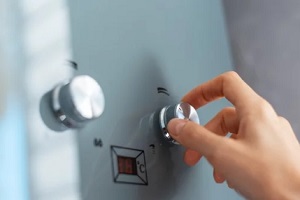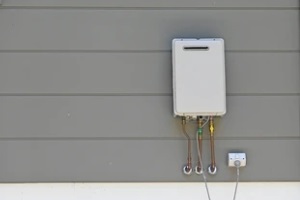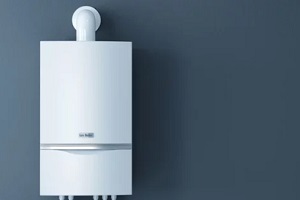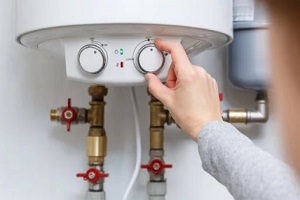
Every home needs a water heater to ensure that hot water is available for showers, dishwashers and general household tasks. These appliances have a limited lifespan, so homeowners may find that they need to replace their water heater at some point.
When shopping for a new water heater, homeowners can choose between gas or electric models. Both of these options have their share of advantages and drawbacks. Here is a look at some of the main considerations when choosing which type of water heater will best suit your needs.
Hot Water Availability
One concern for many homeowners is hot water availability. With an electric heater, your home will always have access to hot water – except when there is a power outage. Gas heaters, in contrast, will continue to heat water even during an outage as long as the gas line is not disrupted. Of course, homes that do not have access to a gas line cannot use a gas water heater.
Another important consideration is the amount of hot water the tank can produce during its first hour of use, which is a value known as the First Hour Rating or FHR. A higher FHR number means that more water will be available quickly. Because gas water heaters tend to heat up more quickly than electric ones, they typically have a higher FHR.
Energy Efficiency
Gas hot water heaters often cost less to run because natural gas tends to be more affordable than electricity. However, the greater efficiency offered by electric heaters makes them a viable option for budget-minded homeowners.
Gas heaters vent their spent gas, which takes some heat along with it. An electric heater, however, uses almost all of the energy it receives and converts it into hot water, which equates to less waste. Nevertheless, it is possible to purchase an energy-efficient gas heater that uses significantly less energy if this is a concern.

Size
Electric and gas heaters are both available in sizes that range from 20 to 100 gallons. A larger hot water heater means that your family will have more hot water available at one time. Although they tend to be more expensive, many families choose them for their convenience.
However, it is important to keep in mind that larger heaters can take up significantly more space, and electric heaters tend to take up slightly less space overall than gas heaters with the same capacity in gallons.
Because gas heaters need to vent, they tend to be a bit wider and have pipes that must exit the home, which can limit the locations within the home where they can be placed.
The more compact nature of an electric heater means there is more flexibility when it comes to placement. Electric heaters can also be used as point-of-origin heaters that can be installed directly onto faucets so that hot water can be available on demand for tasks like making tea.
Installation
Another consideration if you are switching from an electric tank to a gas one is installation. Although replacing gas heaters with other gas heaters or replacing an electric heater with another electric one is relatively straightforward, changing the type of heater you use can be more complicated.
If you are installing a gas heater for the first time, a gas line must be run to its location and a vent must be created, which could entail cutting or drilling through the side of the home. This can make it more expensive to install.
Maintenance
Both electric and gas water heaters are generally easy to maintain. Both types require regular flushing to avoid the buildup of sediment on the bottom of the tank, which can threaten its lifespan. In addition, some gas tanks may need an occasional vent cleaning, and gas lines need to be inspected from time to time to prevent gas leaks.

Costs
An electric water heater may cost less to purchase, but its running costs over time often end up being higher than those of gas heaters. The lower upfront cost of electric heaters is down to the fact that they contain fewer parts and are easier to install.
However, when you factor in the cost of the electricity used to run the tank, the higher cost of electricity compared to natural gas means that a gas heater could end up paying for itself in terms of lower energy costs over time.
Get In Touch With Baumbach Plumbing & Remodeling
If you are considering installing a new water heater in your home, get in touch with the experienced master plumbers at Baumbach Plumbing & Remodeling. Our team of licensed, bonded and insured plumbers can advise you on the best type of tank to suit your home and your family’s needs.






